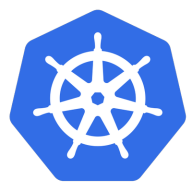

Kubernetes and OpenShift compete in the field of container orchestration platforms. OpenShift appears to have the upper hand in terms of security and enterprise support, while Kubernetes leads with cost-effectiveness and widespread community usage.
Features: Kubernetes offers impressive scalability, self-healing capabilities, and extensive automation like auto-repair and auto-scaling. It is geared towards users comfortable in diverse cloud environments. OpenShift, built on Kubernetes, stands out with enhanced security features, structured environments, and seamless integration with the Red Hat ecosystem, which provides built-in security measures and user-friendly elements.
Room for Improvement: Kubernetes could improve its dashboard interface, ease of use for non-Linux users, and the integration of networking components, along with enhanced scheduling and monitoring tools. OpenShift requires better documentation and improved integration, particularly with external platforms and some advanced security configurations. Users find its setup process to be complex, seeking more accessible interfaces and tools.
Ease of Deployment and Customer Service: Kubernetes is versatile across private, public, and hybrid clouds but often lacks direct support, leading users to turn to community forums or consultants. Red Hat OpenShift provides robust enterprise-level support within its package, appealing to large organizations requiring reliable assistance. OpenShift's deployment is streamlined by Red Hat's structured support offerings.
Pricing and ROI: Kubernetes, being open-source, is typically cost-effective, especially for businesses with the necessary infrastructure and expertise, only incurring support and storage-related costs. OpenShift's higher licensing fees reflect its advanced features and support services, catering to large enterprises needing comprehensive solutions. Both platforms offer significant ROI, with Kubernetes favored for lower operational costs and OpenShift for its enterprise-grade features and support.


Kubernetes (K8s) is an open-source system for automating deployment, scaling, and management of containerized applications.
It groups containers that make up an application into logical units for easy management and discovery. Kubernetes builds upon 15 years of experience of running production workloads at Google, combined with best-of-breed ideas and practices from the community.
Red Hat® OpenShift® offers a consistent hybrid cloud foundation for building and scaling containerized applications. Benefit from streamlined platform installation and upgrades from one of the enterprise Kubernetes leaders.
We monitor all Container Management reviews to prevent fraudulent reviews and keep review quality high. We do not post reviews by company employees or direct competitors. We validate each review for authenticity via cross-reference with LinkedIn, and personal follow-up with the reviewer when necessary.